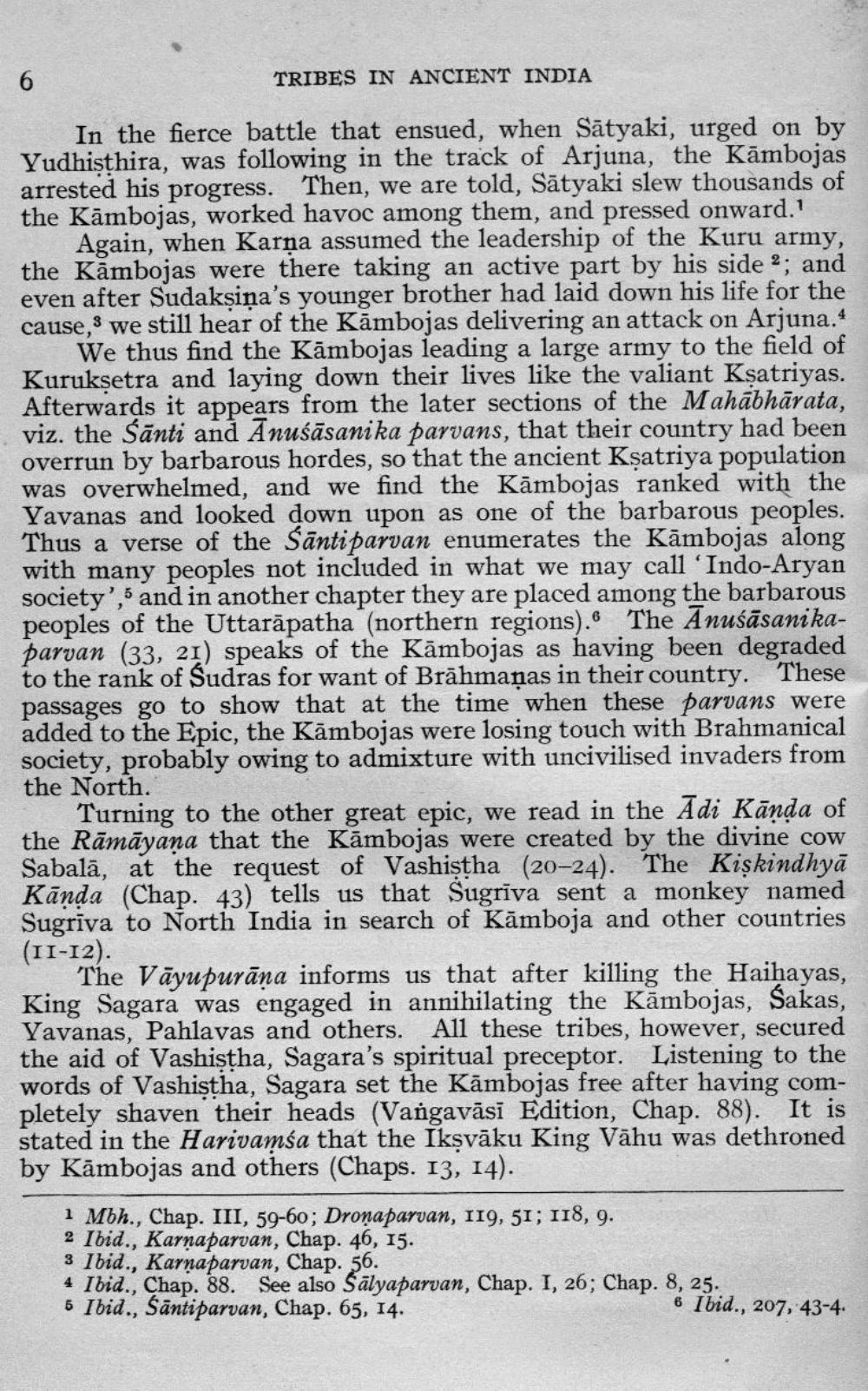________________
6
TRIBES IN ANCIENT INDIA
In the fierce battle that ensued, when Satyaki, urged on by Yudhisthira, was following in the track of Arjuna, the Kambojas arrested his progress. Then, we are told, Satyaki slew thousands of the Kambojas, worked havoc among them, and pressed onward.1
Again, when Karna assumed the leadership of the Kuru army, the Kambojas were there taking an active part by his side 2; and even after Sudakṣina's younger brother had laid down his life for the cause, we still hear of the Kambojas delivering an attack on Arjuna.1
We thus find the Kambojas leading a large army to the field of Kurukṣetra and laying down their lives like the valiant Ksatriyas. Afterwards it appears from the later sections of the Mahabharata, viz. the Santi and Anusasanika parvans, that their country had been overrun by barbarous hordes, so that the ancient Kṣatriya population was overwhelmed, and we find the Kambojas ranked with the Yavanas and looked down upon as one of the barbarous peoples. Thus a verse of the Santiparvan enumerates the Kambojas along with many peoples not included in what we may call 'Indo-Aryan society', and in another chapter they are placed among the barbarous peoples of the Uttarapatha (northern regions). The Anusasanikaparvan (33, 21) speaks of the Kambojas as having been degraded to the rank of Sudras for want of Brahmanas in their country. These passages go to show that at the time when these parvans were added to the Epic, the Kambojas were losing touch with Brahmanical society, probably owing to admixture with uncivilised invaders from the North.
Turning to the other great epic, we read in the Adi Kanda of the Rāmāyaṇa that the Kambojas were created by the divine cow Sabalā, at the request of Vashistha (20-24). The Kişkindhyā Kanda (Chap. 43) tells us that Sugrīva sent a monkey named Sugriva to North India in search of Kamboja and other countries (11-12).
The Vayupurana informs us that after killing the Haihayas, King Sagara was engaged in annihilating the Kambojas, Sakas, Yavanas, Pahlavas and others. All these tribes, however, secured the aid of Vashistha, Sagara's spiritual preceptor. Listening to the words of Vashistha, Sagara set the Kambojas free after having completely shaven their heads (Vangaväsi Edition, Chap. 88). It is stated in the Harivamsa that the Ikṣvāku King Vahu was dethroned by Kambojas and others (Chaps. 13, 14).
1 Mbh., Chap. III, 59-60; Dronaparvan, 119, 51; 118, 9.
2 Ibid., Karnaparvan, Chap. 46, 15.
3 Ibid., Karnaparvan, Chap. 56.
4 Ibid., Chap. 88. See also Salyaparvan, Chap. I, 26; Chap. 8, 25.
5 Ibid., Santiparvan, Chap. 65, 14.
6 Ibid., 207, 43-4.




